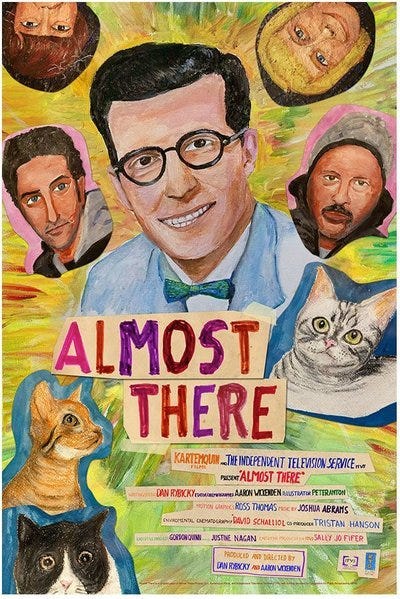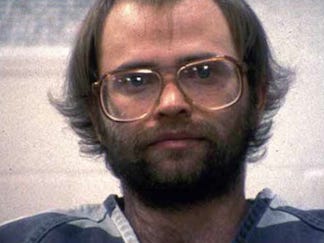Why Don't Documentary Filmmakers Save Animals When They're Hurt In Front Of The Camera?
Ideals of Documentary Film
A lot of video essay channels focus a lot of their time on Movies, Every Frame a Painting, Wisecrack, and the Nerdwriter to name a few; But at that place's always one genre of pic that they seem to ignore, Documentaries; and I get information technology. Information technology's a lot harder to let's say extract the essence of a shot, or to judge the quality of the writing when the Director doesn't have full command over what'southward happening. However, at that place's an elephant in the room when you discuss a documentary picture because when yous discuss documentary — y'all have to discuss the ethics of documentary.
Now before we delve deep into the ethics of md motion picture we have to ascertain it properly. Often ethics go mixed up with morals, the two discuss similar things and in the right circumstances — can be the aforementioned. Mariam-Webster defines Morals as: "considered right and good by well-nigh people : agreeing with a standard of right behavior." And Ideals as: "the field of study dealing with what is good and bad and with moral duty and obligation." Can y'all encounter how they may become confused?
Basically Morals is a standard of principles determined by guild, and Ethics is a standard of principles determined by the individual.
In documentary movie filmmakers do have a set of morals, ironically referred to as The Code of Ethics. These are basically principles that are required of the director for the picture to go along its integrity in tact. Some examples of these include: 1. The manager must not interfere with the life path of the field of study. 2. The filmmakers cannot pay the subjects for their utilise in the film. three. All parties involved with the moving picture's story must be given the opportunity to correspond their self. At that place are many more than this simply these are just some of the biggest three. These rules can be quite vague for example: You can't pay you subjects to film them is a part of the Code of Ideals, all the same you lot can take your subject field out to dinner without violating the lawmaking. The Code of Ethics is purposely vague to allow the director of the film to maintain creative integrity, but considering of this vagueness the line can exist blurred when information technology comes to ethics.
A fantastic example of the vagueness of the Physician Code of Ethics is the HBO Series, the Jinx. The series is renowned for the huge controversy and argue over the Ethics of Documentary it caused when it was declared that the directors withheld evidence against Robert Durst. At present I'1000 not here to say whether or not this is OK. Although I think what they did was totally fine, simply many people outside of the flick globe thought that this was not merely a violation of ideals but the constabulary. People are all the same questioning whether or not its ok to withhold contents of the film in order to sustain the story. And while it hasn't withal been adamant if it did violate the law, merely considering of the premier of the Jinx, Robert Durst was arrested and bedevilled.
This is an example of something that Journalists would never do, and a showing of the differences between Journalists and Documentary Filmmakers. Journalists have a desire to proceed their stories as factual and unbiased as possible where documentaries go the opposite route and are often very biased.
In turn Journalists attempt to get a story, and Documentarians attempt to go an emotion.
A very of import and interesting counter-argument to Doc movie making in general is the question:
"What gives the filmmakers the right to film these people?"
At present this is a very interesting question and often there are many different answers for unlike films, but one answer that is always consistent is the subjects do.
The subjects give the filmmakers the right to film them.
In Docs the characters that are being followed are not actors and they are not getting paid. In the industry these people are referred to every bit subjects. Yous will not see a subject area in a flick without their expressed permission to exist filmed. This isn't just an ethics affair information technology is as well the law. Often times the filmmakers and subjects become friends during the process. An example of this is Aaron Wickenden and Dan Rybicky's 2014 picture Virtually There. The pair spent eight years filming with the field of study Peter and became good friends with him, a human relationship they maintain today. Unlike Hollywood, the characters are not actors so maintaining a skillful relationship with them is vital to the completion of the moving-picture show.

Something that must be remembered is that in documentary, the person backside the photographic camera is just as much of a grapheme in the film as the people on screen. A great example of this Subject filmmaker relationship is the 2002 film Stevie, Directed by Steve James. The picture follows the managing director as he reconnects with a swain he formerly mentored while volunteering in the Big Brothers Footling Brothers Program. Stevie, the titular character, has non had an piece of cake life in the last ten years that Steve has spoken to him and Steve feels guilty for losing touch with him. Without giving as well much detail Stevie is eventually tried and convicted of a very serious crime and is put in jail. When the film was released many people called into question the Ethics of Steve for including Stevie'due south incarceration in the moving picture. Many people idea it was a violation of Stevie's privacy to include that while Steve debated that he didn't want to hibernate Stevie'southward incorrect doings, that Stevie was who he was and did what he did and it would be a disservice to not show his full character. This is a nifty case of how Ethics works in the world of physician film, it takes two sides of an issue and brings them out into the public and makes them open up for give-and-take.

That'south the power of documentary picture making. Unlike fiction films where every single thing is meticulously crafted to be exactly what the Director's vision is, Documentary is more open ended often times inconclusive, and is more in touch on with a part of social club at the moment it was captured. While fiction films open up discussions about cinematic techniques and hidden meanings in plots, Documentary spark discussions on our present world, the skilful and the bad, and how we can alter it for the amend, and in the example of the Jinx actually take an effect on our world. So the side by side time you lot scout a documentary remember nigh who's behind the camera and what yous aren't seeing as much equally what you are.
Watch a Video Essay of this writing here:
Source: https://medium.com/applaudience/ethics-of-documentary-film-bff3cfe6e5fc
Posted by: cappssomay1959.blogspot.com

0 Response to "Why Don't Documentary Filmmakers Save Animals When They're Hurt In Front Of The Camera?"
Post a Comment